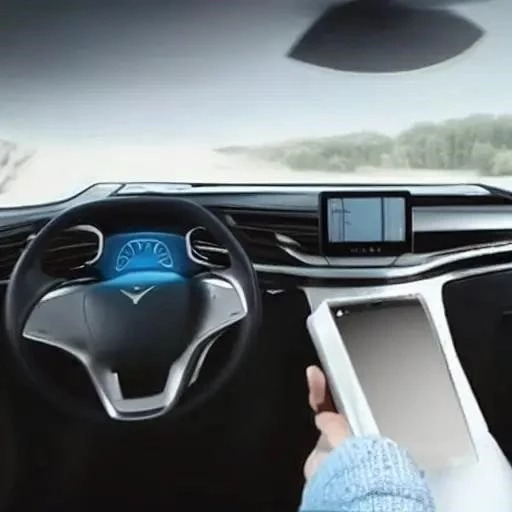
In an era increasingly defined by environmental consciousness and technological advancement, our vehicles are evolving far beyond mere modes of transport. They are sophisticated ecosystems, meticulously engineered to balance performance with planetary stewardship. For millions of diesel car owners globally, a crucial yet often overlooked component in this delicate balance is AdBlue – a vital fluid that dramatically reduces harmful nitrogen oxide (NOx) emissions. Ignoring its presence, or indeed its absence, could lead to unexpected complications, ranging from diminished engine performance to significant legal and financial penalties. The digital age, however, offers a remarkably elegant solution, transforming a potential headache into a seamless, proactive maintenance routine.
The imperative to maintain optimal vehicle performance while simultaneously adhering to stringent environmental regulations has never been clearer. Modern diesel engines, driving the wheels of commerce and personal mobility, are equipped with Selective Catalytic Reduction (SCR) systems designed to chemically convert noxious gases into harmless nitrogen and water vapor. This transformative process relies entirely on AdBlue, a non-toxic, high-purity urea solution. As we navigate a future demanding cleaner air and more responsible motoring, understanding AdBlue’s role and proactively managing its levels—often through increasingly accessible online registration checks—becomes not just a recommendation, but a fundamental pillar of modern vehicle ownership. This foresight, actively embracing digital tools, ensures your vehicle remains a compliant, efficient, and environmentally friendly partner on every journey.
Here’s a quick reference guide to AdBlue and why an online check is more relevant than ever:
| Category | Information |
|---|---|
| What is AdBlue? | A non-toxic, aqueous urea solution (32.5% urea, 67.5% deionized water) used in Selective Catalytic Reduction (SCR) systems of diesel vehicles. It reduces harmful nitrogen oxide (NOx) emissions. |
| Why is it needed? | Required by Euro 6 (and later) emissions standards for modern diesel engines to convert NOx into harmless nitrogen and water, significantly lowering pollution. Without it, your car may enter ‘limp mode’ or fail to start. |
| How does it work? | Injected into the exhaust gas stream before the SCR catalyst; Heat converts urea into ammonia, which then reacts with NOx over the catalyst, neutralizing the harmful gases. |
| Online Check Relevance | While direct AdBlue level checks aren’t typically “online,” many national vehicle registration databases or manufacturer portals provide service history, recall information, or links to diagnostic tools that can indicate if your vehicle type requires AdBlue and when its SCR system might need attention. Digital platforms also help verify your car’s emissions standard. |
| Benefits of Proactive Checking | Prevents engine power reduction, avoids potential fines for non-compliance, ensures optimal fuel efficiency, and contributes to cleaner air. Staying informed through manufacturer apps or service reminders is key. |
| Reference Link | ACEA: AdBlue Fact Sheet |
The journey towards a greener automotive landscape is paved with innovations like AdBlue, a cornerstone of sustainable diesel technology. By integrating insights from AI-driven diagnostics and increasingly sophisticated vehicle management systems, drivers are empowered to transcend traditional, reactive maintenance. Leading experts, like Dr. Alistair Finch, a renowned environmental engineering consultant, frequently emphasize that “the future of automotive care isn’t just about fixing problems; it’s about anticipating them, preventing them, and using data to drive smarter decisions.” This proactive paradigm shift is visibly manifesting in how we approach crucial fluids like AdBlue. Manufacturers are diligently developing intuitive dashboard alerts and mobile applications that provide real-time updates on fluid levels and system health, moving beyond the cryptic warning light to offer actionable intelligence.
Consider the broader implications: regulations, such as those enforced by the European Union and various national agencies, are progressively tightening the net on vehicular emissions. A car running without AdBlue, or with a compromised SCR system, isn’t just inefficient; it’s a non-compliant polluter. This could lead to a refusal to pass emissions tests, potentially invalidating insurance or even incurring substantial penalties. The convenience of an online “registration check” might not directly reveal your AdBlue tank level, but it serves as a powerful gateway. It can confirm whether your specific vehicle model is equipped with SCR technology, guide you to official service schedules, or even connect you with digital platforms offered by your car’s manufacturer that do monitor fluid levels remotely. This digital synergy is incredibly effective, transforming what could be a forgotten chore into an effortless part of responsible car ownership.
The automotive industry is currently experiencing a profound transformation, moving towards an ecosystem where connectivity and data are paramount. Companies like Bosch and Continental are investing heavily in developing advanced sensor technologies and telematics systems that continuously monitor engine parameters, including AdBlue consumption and SCR system integrity. These systems are not just about compliance; they are about optimizing engine performance, extending vehicle lifespan, and ensuring a smoother, more reliable driving experience. Embracing these technological advancements, from the simple act of looking up your car’s AdBlue requirements online to utilizing manufacturer-provided apps for diagnostics, is a testament to forward-thinking driving. It’s a powerful step towards a future where our roads are cleaner, our vehicles are smarter, and our environmental footprint is significantly reduced. The era of informed, proactive motoring is not just arriving; it is here, and it promises a remarkably brighter horizon for all.
